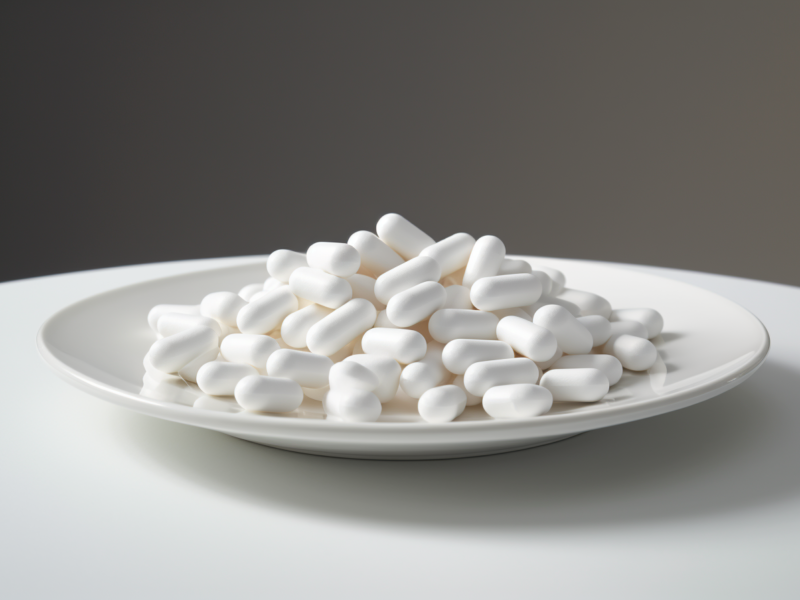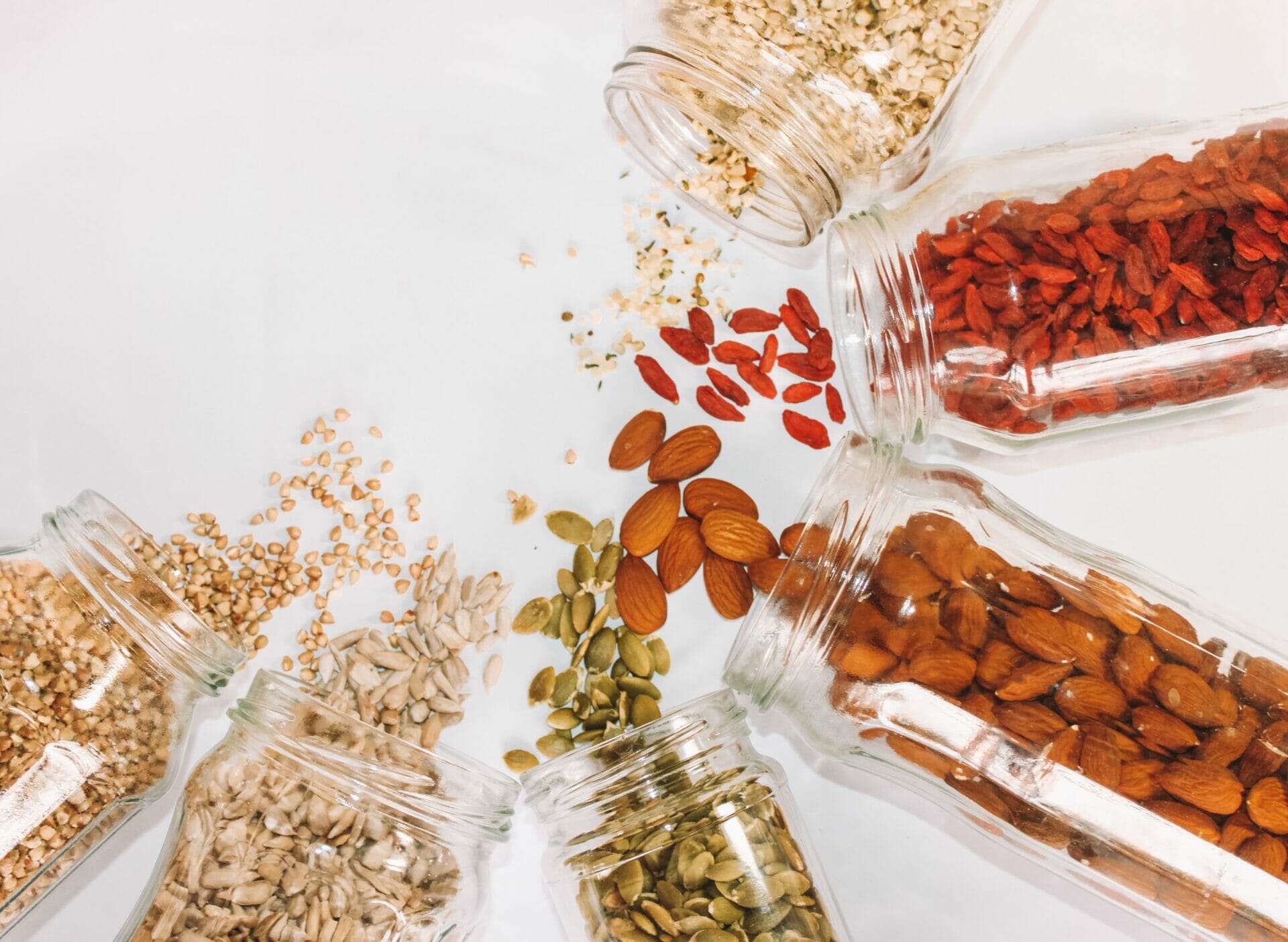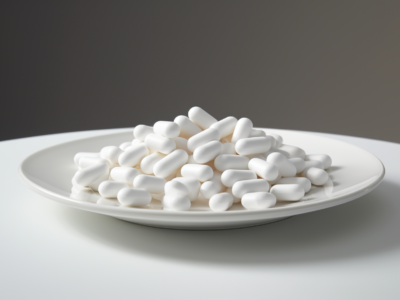Understanding Vitamin B12 Deficiency and its Symptoms
Well, ding-dong, folks, it’s high time to get nitty-gritty about something that’s been on my mind and potentially affecting your body: understanding vitamin B12 deficiency and its symptoms. Now, it’s a bit of a rollercoaster, but bear with me. So, vitamin B12, a Lionel Messi of vitamins, is an essential nutrient that your body just has to have to function properly. Diet consisting mainly of animal products is like a gold mine when it comes to getting sufficient vitamin B12. However, if you’re a vegetarian or, heaven forbid, a full-on vegan, you might find yourself grappling with a bit of a pickle in terms of getting sufficient B12. Now, symptoms of vitamin B12 deficiency sneak up on you like a burglar in the night. For starters, you may feel as lethargic as a lazy cat on a hot tin roof, plus a little fuzzy around the edges, a case of anemia might pop up because of low red blood cell production. Low levels of B12 in your system? Huh, they can potentially lead to neurological problems or sometimes neurological complications, that’s a stumbling block you don’t want to run into.
So, here’s a quick run-down:
1. Fatigue or lack of energy
2. Anemia
3. Weakness
4. Constipation
5. Loss of appetite
6. Weight loss
Now, don’t fret your pretty little head, my advice is not to start popping vitamin B12 supplements willy-nilly but hit the road to explore food sources high in B12. If you’re mainly plant-based, fortify your diet with some fortified cereals, yeasty spreads that contain B12 or maybe even take a vitamin B12 supplement. Hey, taking a dose of vitamin B12 may not be the key to eternal youth but it sure will sort out deficiency issues like a charm. After all, it’s better to be safe than sorry.
The Role of Vitamin B12 in Preventing Anemia
Ah, the magic of Vitamin B12, an essential nutrient that plays a vital role in our overall well being! Let’s get down to brass tacks – Vitamin B12 is key to preventing anemia, a common health ailment where there’s a dearth of healthy red blood cells. By George, the way this water-soluble vitamin helps is a thing of beauty, folks! It assists in the formation of these blood cells and improves their functionality, ensuring they are top-notch and up for the task.

Just a moment, it’s not all smooth sailing though – deficiency of Vitamin B12 can lead to different types of anemia. Now that’s a sticky wicket we all want to avoid!
So, where can you get Vitamin B12, you ask? Well, it’s not as elusive as a needle in a haystack, I assure you.
You need to consume enough B12-rich foods to achieve the recommended daily intake of 2.4 mcg.
You can find a decent amount of vitamin B12 from several sources of vitamin such as animal-based foods, fortified foods and if you’re lacking in enough intrinsic factor to absorb B12 from food, don’t flip your wig, B12 shots or vitamin supplements can come to your rescue.
Now, let’s spill the beans about foods high in Vitamin B12 – we’re talking egg yolks, not the whites (yes, you gotta eat the whole egg), shellfish, and organ meats. Here’s an interesting tidbit – while it’s recommended to eat plant-based foods for a healthy lifestyle, vegetarians and vegans might face a steep climb here with a higher risk of Vitamin B12 deficiency as these foods lack this essential nutrient. Forks in the road for vegans include vegan B12 fortified foods or supplements. As they say, better safe than sorry, so let’s keep those vitamin B12 levels in the pink!
How to Fortify Your Diet with Foods Containing Vitamin B12
Hang on to your forks, it’s time to fuel up on Vitamin B12! This gem of a nutrient, often referred to as the ‘energy vitamin’, plays a critical role in our overall well being. From keeping our nerve cells happy to aiding in the production of DNA, B12 really has a finger in every pie. But here’s the rub: Our body cannot produce it on its own. So, it’s crucial to ensure that our daily diet includes a sufficient intake of foods packed with this vital vitamin.
Primarily, this power nutrient is found in a variety of animal-based foods. But don’t hit the panic button just yet if you’re a vegetarian or vegan. There are alternatives available to ensure that you’re not missing out on your daily dose of B12! Animal-lover or not, it’s essential to weave these top sources of Vitamin B12 into your diet:
1. Seafood: Now, this is where Vitamin B12 really makes a splash. Shellfish like clams and oysters are brimming with it. Even fishes, such as trout and salmon, can be a reliable source.
2. Red Meat: Here’s some food for thought – a small steak can provide almost your entire daily requirement of Vitamin B12.
3. Poultry: Chicken, turkey and the like are also high in this important nutrient. Egg yolks, in particular, have higher levels of Vitamin B12 than egg whites.
4. Dairy: Don’t skim past this one – milk, cheese, and yogurt can help tick your B12 box for the day!
5. Fortified Plant-Based Foods: And for our vegan and vegetarian friends, fortified cereals, non-dairy milk, and certain types of yeast can also be your B12 allies.
Remember folks, it’s not just about getting enough of the good stuff, but also how well your body absorbs this essential vitamin. Conditions like atrophic gastritis, pernicious anemia, or certain medications can hinder the body’s ability to absorb B12 effectively. In such cases, higher-dose Vitamin B12 injections may be the ticket to maintaining optimal levels. So chow down and take note of how your body reacts. You might be closer than you think to reclaiming your B12 crown and relishing all the benefits this superhero vitamin brings to the table. After all, we don’t want a lack of Vitamin B12 raining on our parade, do we?
The Importance of Vitamin B12 Supplement for Maintaining B12 Levels Fast
Pay attention, folks, it’s time to get down to the nitty-gritty of why vitamin B12 supplementation is as vital as a morning cup of joe to kickstart your day. You see, vitamin B12 is an essential nutrient that plays a role as important as a leading man in a Hollywood film.
It helps keep your nerve cells all hunky-dory and equally pitches in production of DNA.
Also, it’s as rich in our food as a Silicon Valley entrepreneur in dollars. Meat, dairy, and seafood have loads of it. Heck, even egg yolks have higher levels than most foods. But, here’s the kicker! Some folks shed their B12 like water off a duck’s back.
It’s alarming how most older adults can’t absorb vitamin B12 from foods to the degree a young bright-eyed and bushy-tailed youngster can. Enter the B12 supplements to save the day!
The truth is, these B12 supplements are lifesavers, not just for the older generation, but also for vegans and vegetarians who just don’t eat enough vitamin B12 foods. The recommended daily dose is as small as a sparrows’ heart—you just need to get 2.4 micrograms of the stuff. This won’t make you a millionaire, but sure as eggs is eggs, it’ll keep your body’s B12 levels from sinking faster than a lead balloon. With regular intake, you can enjoy a boosted vitamin B12 status and even restore dwindling B12 levels. Good golly Miss Molly, isn’t that sweet? Yet it’s not all rainbows and unicorns, as taking B12 supplements is not always as simple as apple pie. Watch out, because some side effects of a serious B12 deficiency include fatigue and some mighty nasty neurological issues. But at least you can sleep easy knowing your body stores vitamin B12 for future use, much like a frenzied squirrel stashing up acorns for the winter. Safe to say, with B12 supplements you’re barking up the right tree to regain or maintain your much-needed B12 levels. Now, that’s what I call a shot in the arm!
Conclusion
Vitamin B-12 is an important vitamin for the body and plays a pivotal role in its various functions. It is crucial to get enough Vitamin B12 in your diet as deficiency can lead to serious health complications. Your body doesn’t produce B-12 naturally, hence you have to get it from outside sources. Foods rich in Vitamin B12 such as fish, meat, and dairy, are considered the best sources of Vitamin B12. Furthermore, cereals and grains are also high in Vitamin B12.The body’s absorption of Vitamin B12 is complex and if your body doesn’t get or absorb the recommended 2.4 mcg of Vitamin B12, there’s a risk of deficiency. A deficiency may have severe consequences, which highlights the needs for increased Vitamin B12 intake. It is for this reason you may need to take Vitamin B12 supplements. These supplements often contain the best Vitamin B12 molecule for absorption and can aid in restoring B12 levels to avoid deficiency.
Remember, Vitamin B12 is stored in the liver and kidneys for several years, but it’s crucial to maintain regular intake of B12-rich foods or supplements. Simultaneously, it’s helpful to increase Vitamin B12 levels by consuming other B-vitamins like vitamin B2 and B6. These vitamins should satisfy the bodies Vitamin B12 requirements, however, without a proper diet or with a certain health condition, a serious deficiency can develop. Please ensure your body gets enough B12 to avoid a potential vitamin deficiency.

FAQ’s:
Q1: What is Vitamin B12?
A1: Vitamin B12 is an important vitamin that plays a role in many bodily functions, including the production of red blood cells and the maintenance of the nervous system.
Q2: How much Vitamin B12 do I need?
A2: The recommended daily allowance of Vitamin B12 is 2.4 mcg. However, this may vary depending on age and other factors.
Q3: What are the risks of Vitamin B12 deficiency?
A3: Vitamin B12 deficiency can lead to anemia, fatigue, nerve damage, and other health problems.
Q4: What are the best sources of Vitamin B12?
A4: The best sources of Vitamin B12 include animal products such as meat, fish, eggs, and dairy. Plant-based sources such as fortified cereals and nutritional yeast are also high in Vitamin B12.
Q5: How can I increase my Vitamin B12 levels?
A5: To increase your Vitamin B12 levels, you may need to take a supplement or get it from outside sources. Eating foods that are rich in Vitamin B12, such as meat, fish, eggs, and dairy, can also help.
Q6: How can I avoid Vitamin B12 deficiency?
A6: To avoid Vitamin B12 deficiency, make sure to get enough Vitamin B12 in your diet. Eating foods that are rich in Vitamin B12, such as meat, fish, eggs, and dairy, can help. Taking a Vitamin B12 supplement may also be beneficial.
Q7: How long is Vitamin B12 stored in the body?
A7: Vitamin B12 is stored in the body for several years, so it is important to get enough Vitamin B12 in your diet to avoid deficiency. Taking a Vitamin B12 supplement may also be beneficial in restoring B12 levels.




 Vitamin B and Age-Related Cognitive Decline
Vitamin B and Age-Related Cognitive Decline
